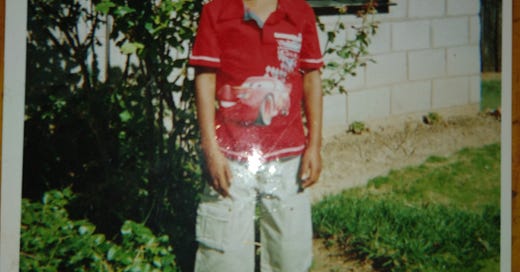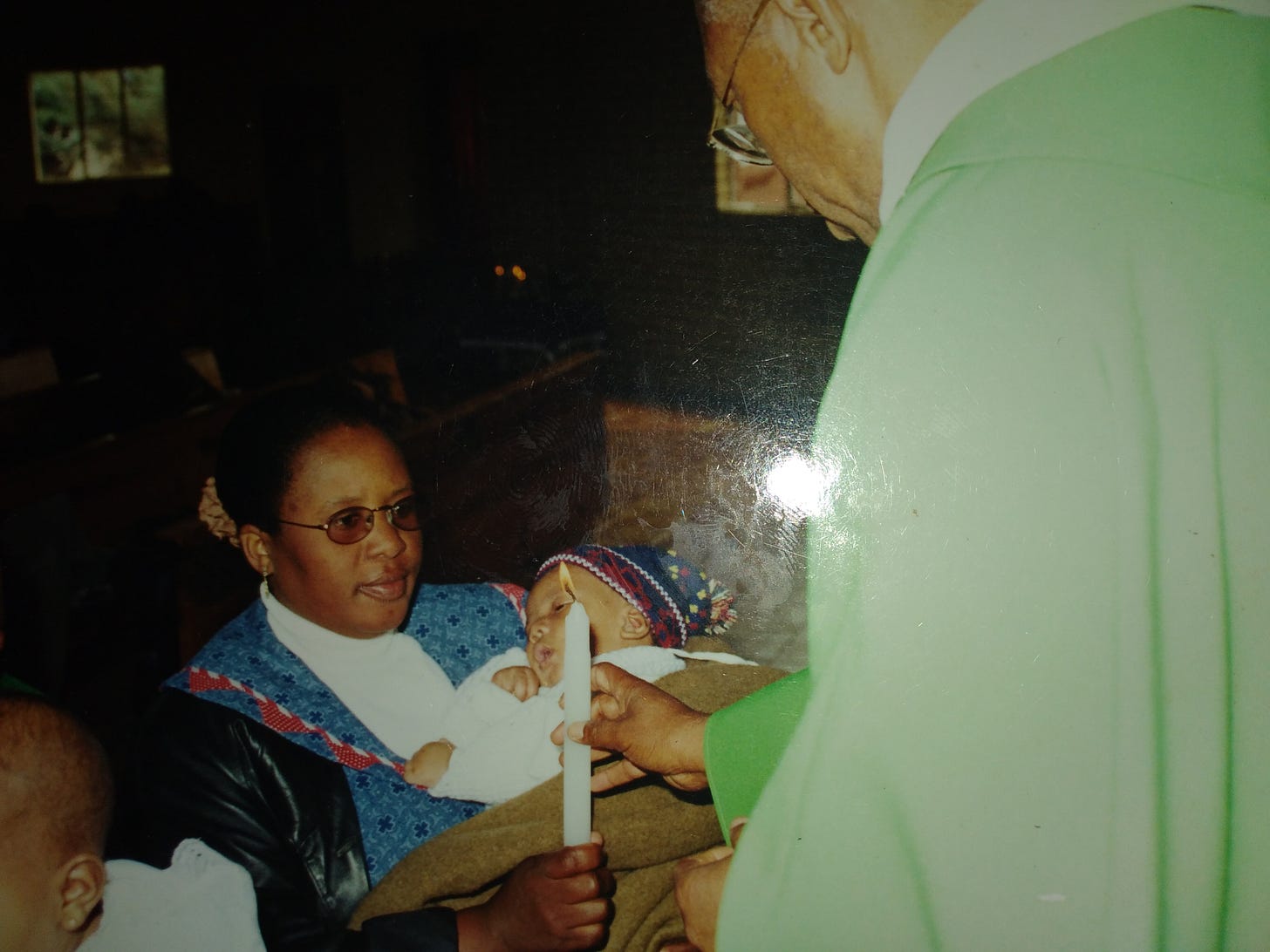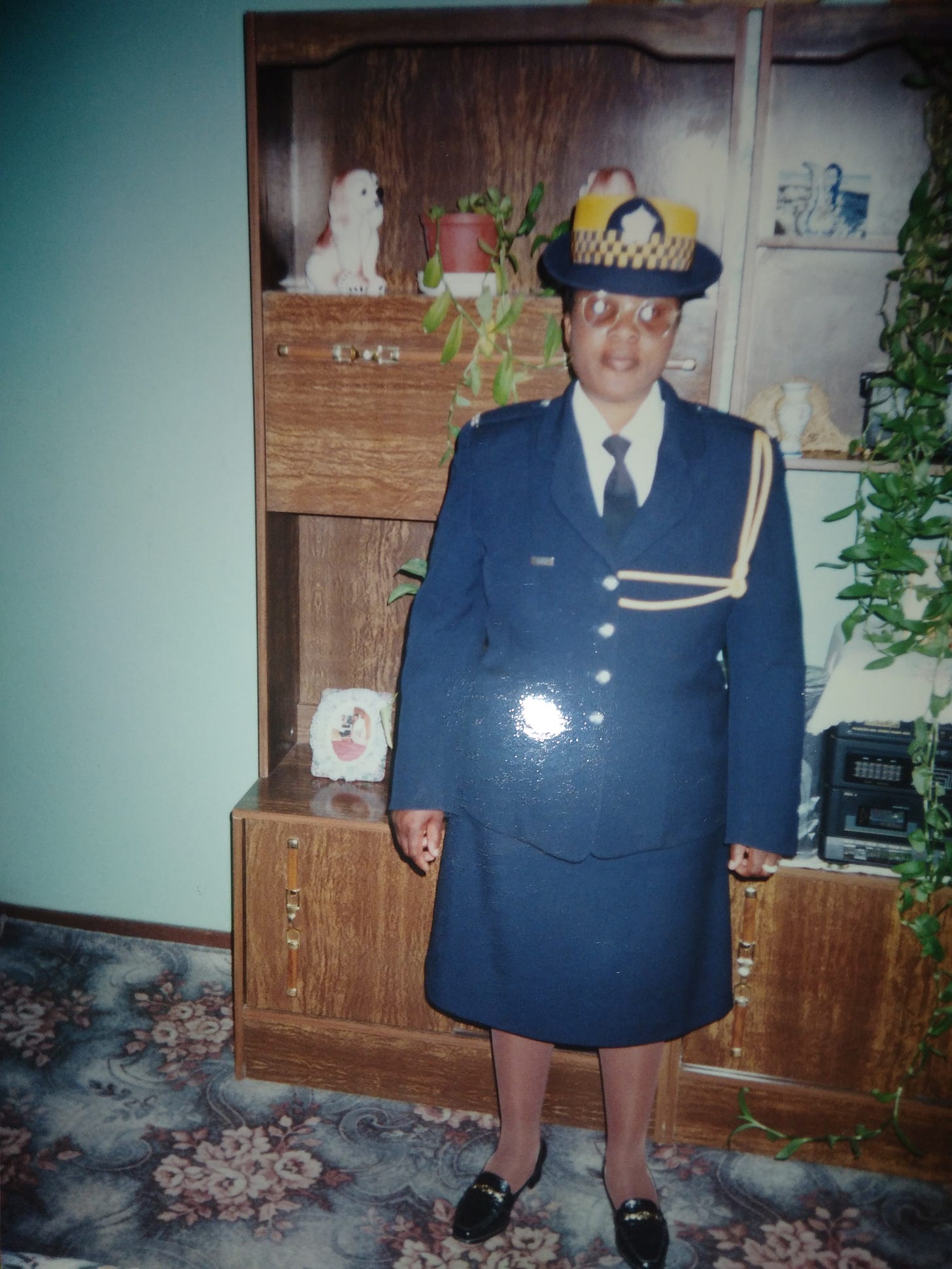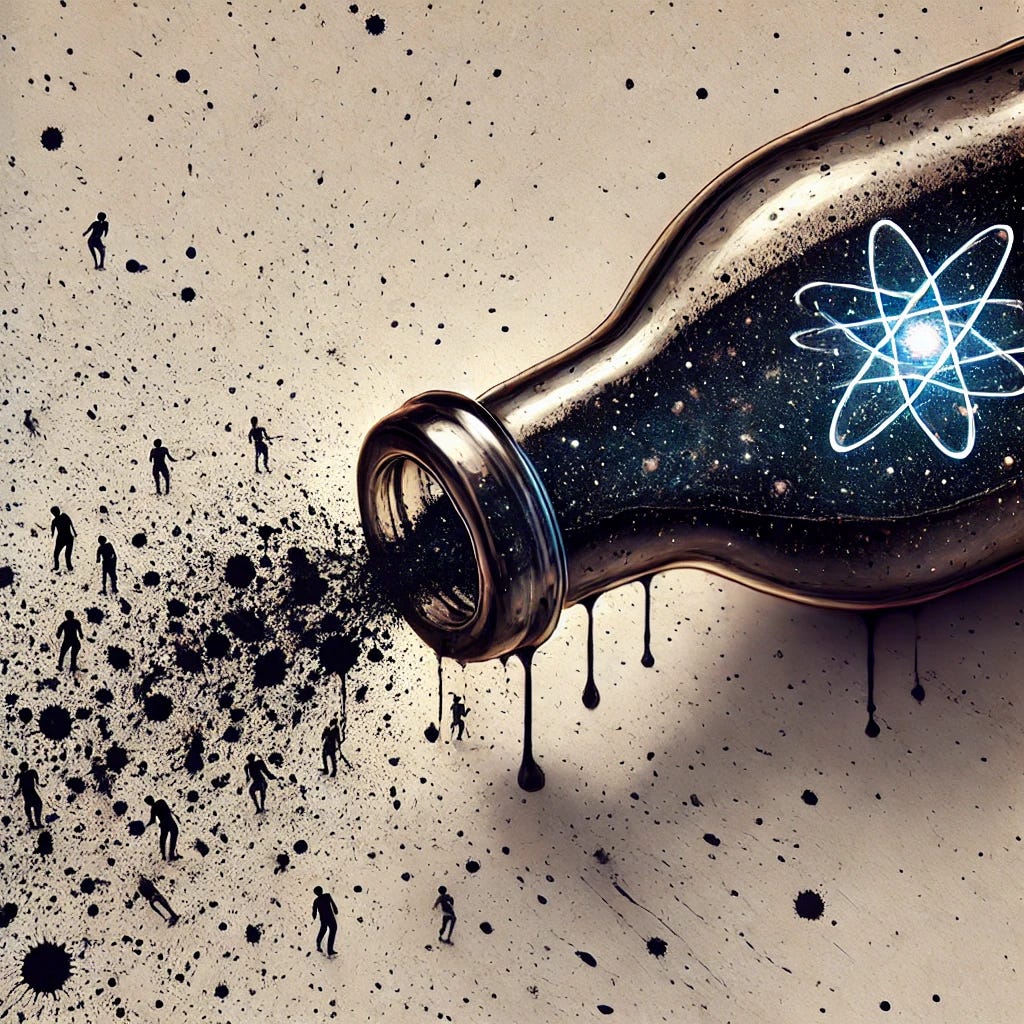The Deity I Believe In and the Evolution of My Theological Understanding
I initially wanted to use the term “god,” written in all lowercase, but to avoid confusion with some religious beliefs, I thought it might be better to use the term “deity.” The term “god” can carry cultural connotations, and some might confuse it with “God” in a specific religious sense. By using “deity,” I aim to clarify that I am referring to a supreme being. I admit I may be struggling to fully assert my identity as my previous essay suggested, but I am beginning to see some clarity about who or what my creator might be.
Do not misunderstand me, I do not believe in “god” or “God” (or even my “deity”) as an elderly figure somewhere out there waiting to judge us. At the same time, I am not an atheist. To be honest, I am still figuring out what exactly I am trying to convey regarding my stance on my creator. What I do know is that I can attempt to define certain aspects of this being. I am unsure if it is entirely accurate to say, “I believe in this deity,” or if that phrasing might be misleading, as the topic remains complex and unresolved for me. My title is meant to draw attention and is not necessarily literal.
In this essay, I aim to articulate how I view my creator, the relationship I have with that creator, and my reflections on this matter. None of these ideas are proven facts; they are simply my conjectures. I welcome any critiques of the ideas I have shared in this essay.
I grew up in a Christian family, and although I did believe in God, I never stopped questioning, especially since the years when my mom was still alive. My mom passed away when I was only 10 years old, and before that, like any curious child, I was eager to understand the world. What I loved about my mom was how real she was with me. She always tried to be honest, even if she didn’t have all the answers.
When I was in grade 4, my teacher frequently brought up two specific topics during class. He would often say, “Litaba tsa ntate Molimo ha li kenoe. Ha u ka batla na Molimo na o tsoa kae, ha u na ba ua fumana; u tla hlanya” (You cannot question God. If you try to understand where God comes from, you won’t succeed, you’ll lose your mind). He also talked about how we were created, often joking but we talk him seriously, “’M’e o hau u o thoanapile ka lets’eng; bana ba rekoa lets’eng” (Your mother found you in the lake; children are bought from the lake). These two statements stayed with me, and I thought about them constantly.
Fortunately, my mom was there to help me make sense of it all. I once asked her where babies come from and shared what my teacher had said. She laughed and replied, “Tichere eno ea hau entse e pota; nna ha kea nka ngoan’a ka lets’eng” (That teacher is just joking around; I didn’t find my child in the lake). However, she never gave me a straightforward answer, but she did point out the tummy.
When it came to our religion or “God,” I’m grateful to have had her as a mother. She never made me feel like a terrible person for any of the actions I did. My memories of our relationship with God are vague, but I remember that she was always authentic despite being religious. She barely went to church and never imposed her beliefs on me. She never made me feel like I was possessed by demons or working for the devil; instead, she reasoned with me like a rational person.
I recall one particular incident when my friends, a boy and his sister, and I were hiding in the storeroom. The boy and I were engaging in coitus with his sister, exchanging rounds (Damn! One of those silly childhood things, I swear I had just learned it from my friend, who apparently did it often with his sister.) At the time, my mom had allowed the whole community to fetch water from her tap, one of the few taps in our area, which was located near the storeroom. Unfortunately, one of our neighbors, who came to fetch water, caught us and reported the incident to my mom.
I was terrified to face her because I knew she was aware of my bad behavior. My mom was a police officer, and she often lashed me severely when I did something wrong. I braced myself for a beating and avoided going inside the house until much later. When I finally did, she was already waiting for me. To my surprise, she calmly asked me to sit down with her in the kitchen.
She spoke to me not as an angry parent but more like a therapist speaking to a patient. She never brought up God or said that I was sinning or that I’d face divine punishment for adultery. Instead, she warned me about the risks of HIV/AIDS and the dangers of having unprotected sex.
The moral of this story is that, yes, I grew up in a Christian family, but my mom never confined me to being righteous or strictly following God. She was a hardworking woman who didn’t rely solely on prayers to meet her needs. She was always striving to create a bright future for both of us. Like many Basotho women, she listened to gospel music on Sundays and allowed me to attend church, even though she rarely went herself. What I admired most was that she never let her religion define her entire persona.
I may be wrong about some aspects of my mom’s views on religion because, as I mentioned, my memories are vague. However, this is how I remember things. After she passed away, I went on to live with another Christian family, and my journey with faith continued. Just five years after her passing, I began losing faith, largely due to my naturally curious mind.
Did I mention how curious I was from as far back as I can recall? I questioned everything, even how rain came about. At one point, my conclusion was that angels were carrying watering cans above the clouds to water the earth. That’s as far as my imagination took me back then.
Anyway, my curiosity grew as I encountered more students in high school who shared intriguing ideas. In 2015, I was in Form C and the pupils I interacted with would bring up fascinating topics. I absorbed these ideas like a sponge and became something of an encyclopedia, eagerly sharing what I learned with everyone who was interested. Interestingly, just a year earlier, I was one of the students who preached around school. I always carried a Bible with me and regularly discussed the word of God with my fellow brethren. At the time, I felt a strong calling to become a priest, but unfortunately, that spark faded a few years later.
By 2016, I had fully embraced atheism and detached myself from the idea of God, as it no longer made sense to me. I became one of those kids who constantly discussed conspiracy theories, always trying to understand the world through a scientific lens. I even aspired to become a scientist. The idea of proving or disproving the existence of God often crossed my mind because, despite being an atheist, the thought of hell still scared me.
Among the conspiracies I believed at the time was the notion that white people came to Africa under the guise of giving Africans land while secretly stealing it. I considered myself one of the “woke” individuals who were pro-African, advocating for meditation, spirituality, healthy eating, and other ideas that gave me a sense of purpose. This phase lasted for a while until I experienced my first mental breakdown two years later.
In 2018, I experienced my first episode of psychosis, and it felt deeply spiritual. From the moment it started, I believed I was having a vision. I saw people in the spiritual realm traveling on a boat through a dark sea, chanting a mantra: “I am coming, I am coming, I am coming,” over and over. A few minutes after this vision, I remember hearing my mom’s voice speaking to me. She reassured me, saying everything was going to be fine and that I just needed to keep pushing forward.
The following day, things escalated to the point where I was admitted to a psychiatric facility. I experienced many hallucinations, some of which still confuse me. They all felt real, and a lot of confusing things happened. At one point, I even thought they might be prophetic visions. Interestingly, I’ve seen a few events from those hallucinations unfold in reality months later. While I won’t delve into all the details, those hallucinations had a significant impact on how I view my creator today.
Other encounters have also shaped my perspective. Four years after my first mental breakdown, I experienced a second one, and few months after that, a third. Although I cringe at some of the things I did during those episodes, I am ultimately grateful for having gone through them. They have profoundly contributed to how I perceive reality and my relationship with the concept of a creator.
To thoroughly lay out my description of the deity I believe in, I would first need to delve into the key aspects of my hallucinations. However, since that would require a much longer essay, and this one is already lengthy, I will summarize everything in a way that makes sense to anyone reading this.
First and foremost, I have already mentioned that my deity does not align with the descriptions most religions provide of “god”/ “God,” an elderly figure with white hair and a beard, sitting on a throne in heaven. Instead, I subscribe to a pantheist view of the deity. This means I see the entire universe, along with everything within it, as one interconnected entity that constitutes “god”/ “God” or simply the deity.
I began to adopt this perspective after immersing myself in Alan Watts's lectures. He spoke about how we are extensions of the Big Bang, emphasizing that the Big Bang didn’t just happen in the past; it is still happening. He uses the analogy of ink in a bottle: imagine throwing a glass bottle full of ink against a wall, causing it to splash. As the ink splatters, it becomes denser where the bottle broke and fades towards the edges, creating small dots. According to Watts, these dots represent human beings, and they are still part of the bigger picture, the process that began with the Big Bang. The sound and splash that happened when the bottle broke against the wall are the Big Bang itself, and the edges are just the byproduct, the universe and its beings. This suggests that the universe is going through self-realization and actualization.
I have been planning to study German Idealism through the works of Hegel, Kant, and Fichte because they all discuss a similar concept they refer to as “The Absolute.” Since I have not yet studied their works in depth, I am drawing on the knowledge I have gained from my classes at school, and I cannot claim that the information I will be sharing is fully accurate. Among all these German thinkers, I find Hegel the most intriguing because his philosophical framework is particularly fascinating to me. According to Hegel, the Absolute is the self-determined, self-realizing totality of reality that unfolds through a dialectical process, where contradictions are sublated and integrated into a higher unity, ultimately culminating in absolute knowledge and self-consciousness. What makes his framework fascinating is his idea of the dialectical process, with the word “dialectic” coming from the Greek word dialektikē, which is derived from dialegesthai, meaning “to converse” or “to engage in discussion.” The root dia- means “through” or “across,” and legein means “to speak” or “to say.”
With that said, the dialectical process occurs through the interaction of two elements: the thesis and the antithesis, which combine to form a third element, called the synthesis, in the search for the absolute. Think of two people having a conversation, one presenting a thesis and the other offering an antithesis. Through their discussion, they reach a conclusion, which is the synthesis. A thesis is a proposal, an antithesis contradicts that proposal, and the synthesis is a new proposal formed from the refutation of the first. A synthesis will turn into a thesis once there emerges an anti-thesis towards it
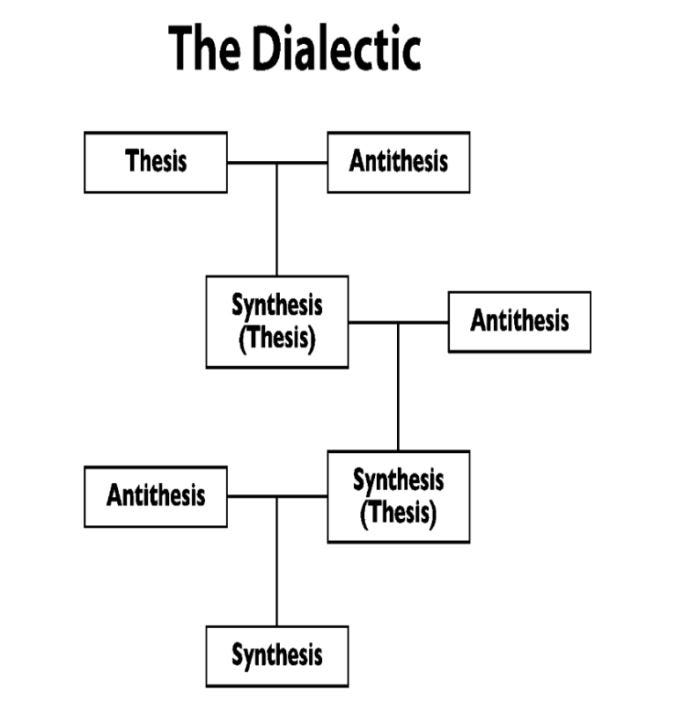
This process occurs in the search for The Absolute. To understand the absolute, think of it as the real reason why the universe was created, an ultimate reason that defines who we truly are. The synthesis does not automatically become The Absolute, but Hegel’s system is based on the idea that the human mind will ultimately reach the absolute. The Absolute is the final synthesis; therefore, the last synthesis will be The Absolute.
This process unfolds through self-actualization and realization. Going back to what I said about the universe exploring what it is, in my view, the universe has naturally created everything in order to inspect and reflect on its true nature. This is why humans have reasoning capabilities. In my previous essay, I mentioned that I believe we are on Earth to solve the problem of life, and perhaps, after solving it, we will progress to the next level, though I cannot yet define what that is.
All this is to say that we are still in the process of learning who the creator is. I can't assign any specific features to what this creator looks like or truly is. I can only describe it in the most ambiguous and vague way, which is that everything that exists in the universe is the creator. Since I was once a Christian, I like using that perspective to make analogies, as I do believe that Jesus Christ did exist. However, I think he was misunderstood or perhaps deliberately passed down his message in an encrypted way. Remember how the Bible is full of parables? I think there is a lot to decipher, even in texts people may consider literal. This belief emerged as a byproduct of my learning about Gnosticism, as well as my personal experience with psychosis, which I’ve mentioned made me feel spiritual. While I was still trying to define what “spirit” is, it made sense to me that, in a philosophical sense, ideas can be considered spiritual. Thus, the spirit can be understood as our ideas, which are intangible and exist within us. Plato’s concept of the world of forms is where the idea of seeing the spirit as ideas originates. It is important not to think of the spirit in the conventional or religious sense, where it is often depicted as something ghost-like. Instead, think of the spirit as our ideas, and the spiritual world as something that exists between our consciousness and ideas, perhaps representing the collective understanding or shared human experience.
I hate being monolithic, and I personally believe it is important to learn from various cultures and religions, so my conjectures are a mix of different ideologies. There is a story that highlights the limitations of perspective and subjective interpretation, which is why I believe Christ might have deliberately concealed certain information or meaning, and why I stopped being a Christian. There is no reason why we have multiple religions and only one could be absolute among them. I believe there is something to learn from all of them.
Tada! once upon a time! Four blindfolded men were brought to an elephant and asked to identify the animal by touch. The first man, feeling the trunk, declared, “This animal must be like a large snake!” The second man, touching one of the elephant’s legs, disagreed, saying, “No, this is like a sturdy tree, strong and solid.” The third man, grasping the ear, said, “You’re both wrong! This is more like a fan, soft and fluttering.” Finally, the fourth man, feeling the tail, concluded, “You are all mistaken. This animal is like a rope, thin and flexible.” Each man was confident in his answer, yet none of them were correct. They could not see the elephant as it truly was, an enormous, majestic creature with a trunk, legs, ears, and tail all connected to form something much greater than any single part. This story, to me, reflects how religions might each grasp a piece of the truth but fail to see the whole. I believe that by connecting the fragments of knowledge I come across, regardless of their background, I can get closer to understanding the greater truth, just as the men needed a broader perspective to truly understand the elephant.
I wanted to highlight all of this as I blend Western and Eastern ideologies. The story above actually comes from Indian philosophy, such as Jainism, Buddhism, and Hinduism. The Eastern concept I want to link with “spirit,” as I was discussing earlier, is dualism (though it is also a Western concept, with adherents such as René Descartes, but I want to explore it from Eastern wisdom). Dualism is commonly found in Eastern religions, such as Taoism, where the principle is illustrated through the yin-yang. The principles of dualism can also be seen in Christianity, where opposites like evil and good, sin and righteousness, heaven and hell are juxtaposed. There are many other examples of dualism, such as right and left, male and female, up and down, and so on. Some of these examples can also be found in the esoteric teachings of Hermes Trismegistus.
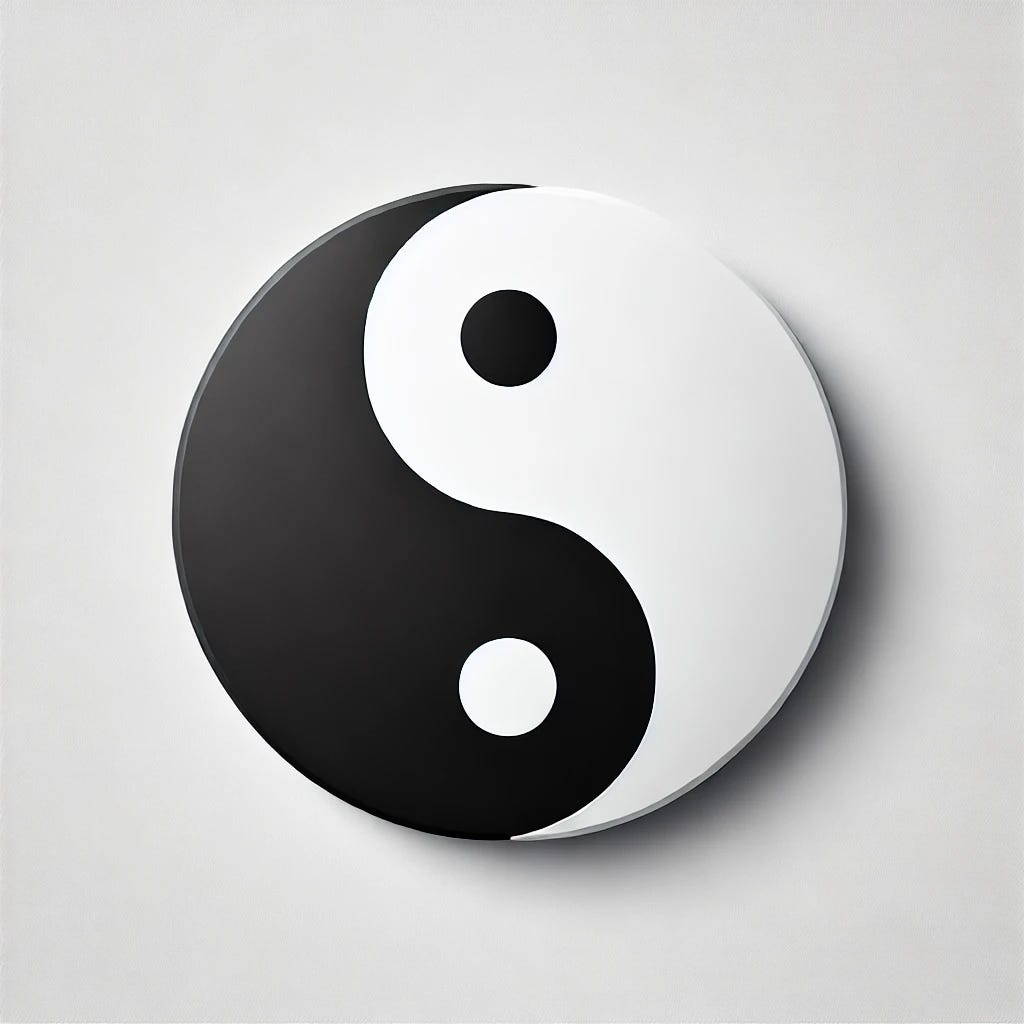
In terms of spirituality, I’ve always wondered whether it’s true that we have spirits. Initially, I concluded that this might be false, but my perspective changed when I learned that spirits could be understood as ideas rather than something invisible residing within the human body. I now perceive the spiritual world as the realm of our collective consciousness, since the theory of the universe self-actualizing and self-reflecting occurs through ideas. The material world, therefore, is the opposite of the spiritual world, which aligns with the law of dualism, similar to the concept of yin and yang. The material world is the realm we all see, full of tangible objects, and is inherently flawed. I’m drawing on the logic of the Gnostics, who believed the material world is fundamentally flawed and evil, while the spiritual world is the one that should be embraced, as it is the true and pure world.
I genuinely have so much to say, but for now, I want to express how I view the deity in the context of spirituality. As I’ve mentioned, I believe the deity is everything in the universe, and within the universe, there are two polarities: the real and the fake. The real is the spiritual world, and the fake is the material world. They both make the deity, just as yin and yang is a whole. You may ask, what is the purpose of the spiritual world? From my experience and the claims of others, there seems to be a natural drive within us that compels people to do what they do. You know how artists claim that when they sing, something from their hearts just expresses itself? Or when painters say they paint what feels intuitive to them? This is similar to the concept of “runner's high” or “flow.” Runner's high is when a person is so immersed in running that they feel as though they are flying instead of running, yes, that kind of flow. It’s the same when a rapper just flows without stopping. In light of all this, I think this is the universe experiencing itself through us. Think about how Charles Bukowski said he just kept writing, even when he was hungry, because something within him wanted to come out. It’s that burning fire within our hearts.
Now, imagine an unknowable, imaginary world, a world that wishes to be known by humans on Earth, but it communicates through consciousness. Everyone conceives ideas through this consciousness because of it, and these ideas turn into memes that fight for their place in the realm of consciousness. According to Richard Dawkins, memes are cultural elements or ideas that spread from person to person through imitation, functioning as units of cultural evolution, similar to how genes propagate biological traits. So, imagine the source of memes being that unimaginable and unknowable world, which manifests its ideas through artists, allowing them to experience that flow. This world is part of the Big Bang and the universe trying to self-actualize and self-reflect, so that it can truly know itself.
Before I elaborate further, let me explain how memes connect to our consciousness. Instead of using the idea of an imaginary world, let's frame it within the concept of the Big Bang. The Big Bang, in a sense, is trying to learn what it truly is through consciousness. It generates ideas that each individual conceives, and these ideas turn into memes, which then compete for survival. This is where the concept of a "war" in the spiritual world arises. The consciousness represents our spiritual world, and the ideas, like competing angles, fight for dominance.
To give a broader perspective on what memes are, think of the way people build houses. Builders learn from one another, and this knowledge is passed on as memes. Consider Christmas decorations, what likely started in one village was copied by the next, and then spread further, until the entire world adopted the tradition. This process shows how ideas and practices can spread and evolve over time.
Now, think about our concepts of morality, what is good and what is bad. You could think of these as memes, too. The “good” can be viewed as pure, angelic memes, while the “bad” represents the devilish memes. As individuals, we are influenced by the memes we encounter, especially those we surround ourselves with. For example, consider how wealthy people continue to accumulate wealth while some devout Christians maintain purity through daily prayers. My point is that wealthy individuals often share memes, ideas, strategies, or mindsets, that contribute to their financial success, and these memes are passed down within their social circles. On the other hand, devout Christians may lack these “wealth-building memes” because they are not exposed to them, which contributes to the perpetuation of their relative poverty.
I believe that for a long time, the spirit has been attempting to express itself, but it has often been misunderstood and, therefore, repressed. However, there will come a time when it will be fully discovered for what it truly is, the moment when the Absolute state is achieved, according to German idealism. We can see echoes of this idea in Greek mythology and various religions, as they all contain similar themes. Every race that has ever existed has had its own belief systems regarding its origins, and the deity I believe in is this very concept.
To summarize, my deity is everything, everywhere, still striving to emerge and reveal itself through our consciousness. However, due to the oppression of the world, it has not yet fully self-realized or self-actualized. I live with the belief that there are two worlds: the world of the Absolute and the world of the life we know. I have discussed the Absolute or spirit in depth, so now, the world of life refers to the tangible world, the one governed by money, superstructures, and societal systems. This world is flawed, meaning it needs to be fixed. Between these worlds, I always choose the world of the Absolute. That is why I am still in school, learning anything that will guide me toward understanding the Absolute.

